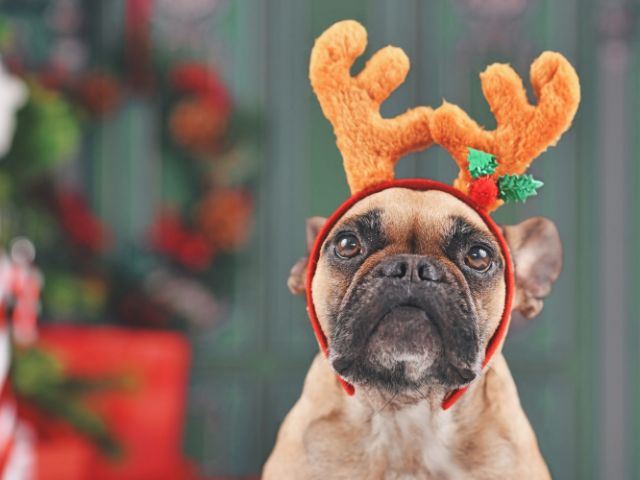
The holiday season brings excitement, but it also introduces potential risks for your pets. From festive foods to decorations, it’s important to keep your furry friends safe while enjoying the celebrations.
One of the biggest concerns during the holidays is food. Many festive treats we enjoy are harmful or toxic to pets. Chocolate, especially dark varieties, contains theobromine, which is dangerous for both dogs and cats. Grapes and raisins, often found in holiday desserts, can cause kidney failure in dogs, while onions, garlic, and chives—common ingredients in holiday dishes—are toxic to both cats and dogs. Alcohol is another hazard; even small amounts can lead to respiratory distress or dangerously low blood sugar in pets. To avoid these issues, keep all human food well out of reach and stick to pet-safe treats.
Decorations, while beautiful, can pose a threat to curious pets. Christmas trees should be secured to prevent toppling, and breakable ornaments should be kept higher up. Tinsel and ribbon are particularly tempting for cats, but if ingested, they can cause intestinal blockages that may require surgery. Electrical cords and lights present another danger, as pets may chew on them and risk electrocution. If you like to use candles for ambiance, opt for flameless ones, as pets can easily knock over real candles, potentially causing burns or fires.
During holiday gatherings, pets can become overwhelmed by the noise and activity. To help them cope, create a quiet, safe space where they can retreat from the chaos. Set up a room with their bed, favorite toys, and water. If guests are frequently coming and going, be mindful of open doors to prevent your pet from slipping outside. Consider keeping pets in their designated space during high-traffic moments to ensure they stay safe indoors.
Many traditional holiday plants, like poinsettias, mistletoe, and holly, can also be toxic to pets. While poinsettias generally cause mild irritation if ingested, mistletoe and holly can lead to more severe gastrointestinal and cardiovascular issues. Additionally, the water used to keep live Christmas trees fresh might contain fertilizers or bacteria harmful to pets, so covering the tree stand is a good precaution.
Pets may experience added stress during the holidays due to changes in their routine or unfamiliar guests. Maintaining a regular schedule for feeding, exercise, and rest can help reduce their anxiety. If you’re traveling with your pet, make sure they are safely secured in a carrier or with a pet seatbelt, and bring along familiar items to make them feel more comfortable in new surroundings.
Lastly, holiday gifts can also pose a risk to pets. Food gifts should be kept out of reach, as pets have a keen sense of smell and might try to unwrap packages. Toys with small parts should be monitored, as they can become choking hazards if pets get their paws on them.
While the holidays are a time of celebration, they can also bring about unexpected hazards for your pets. By taking precautions with food, decorations, and your pet's well-being, you can ensure that both you and your furry companions enjoy a safe and happy holiday season.
